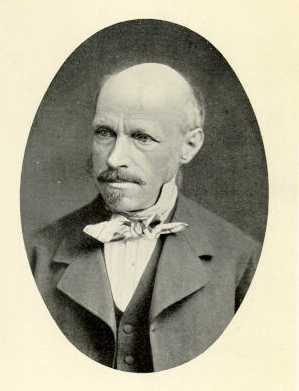Georg Meissner facts for kids
Quick facts for kids
George Meissner
|
|
|---|---|
 |
|
| Born | 19 November 1829 Hanover, Lower Saxony, Germany
|
| Died | 30 March 1905 (aged 75) |
| Nationality | German |
| Occupation | Anatomist, physiologist |
George Meissner (born November 19, 1829 – died March 30, 1905) was an important German scientist. He was an anatomist, who studies the body's structure, and a physiologist, who studies how the body works. Meissner was born in Hanover, Germany.
Contents
Early Life and Studies
George Meissner studied medicine at the University of Göttingen. There, he worked closely with another famous scientist, Rudolf Wagner. In 1851, Meissner joined Wagner and Theodor Billroth on a trip to Trieste. During this trip, he studied torpedo fish for scientific research. He earned his doctorate degree from Göttingen in 1852.
A Professor's Journey
After finishing his studies, Meissner became a university professor. He taught at several universities. First, he was a professor at the University of Basel starting in 1855. Then, he moved to the University of Freiburg in 1857. Finally, from 1860 to 1901, he taught at the University of Göttingen.
Meissner's Discoveries
George Meissner is famous for discovering tiny parts of the human body.
What are Meissner's Corpuscles?
His name is linked to Meissner's corpuscles. These are special sensors in your skin. They help you feel light touches, like when a feather brushes your arm. Meissner first described these in 1852. There was a disagreement between Meissner and Rudolf Wagner about who discovered them first. This caused some tension between them for a few years.
What is Meissner's Plexus?
Meissner's name is also connected to Meissner's plexus. This is a network of nerves found in the wall of your alimentary tract, which is the long tube that food goes through in your body. This nerve network helps control how your digestive system works.
Research on Digestion
Meissner also studied how the body breaks down food. He researched proteins and how they are digested in the digestive system. This helped scientists understand more about how our bodies get energy from food.
Mentoring a Nobel Prize Winner
George Meissner was the teacher for Robert Koch. Robert Koch later became one of the main founders of modern bacteriology, which is the study of bacteria. Koch even won the Nobel Prize in Physiology or Medicine in 1905 for his work.
See also
 In Spanish: Georg Meissner para niños
In Spanish: Georg Meissner para niños
 | Stephanie Wilson |
 | Charles Bolden |
 | Ronald McNair |
 | Frederick D. Gregory |

